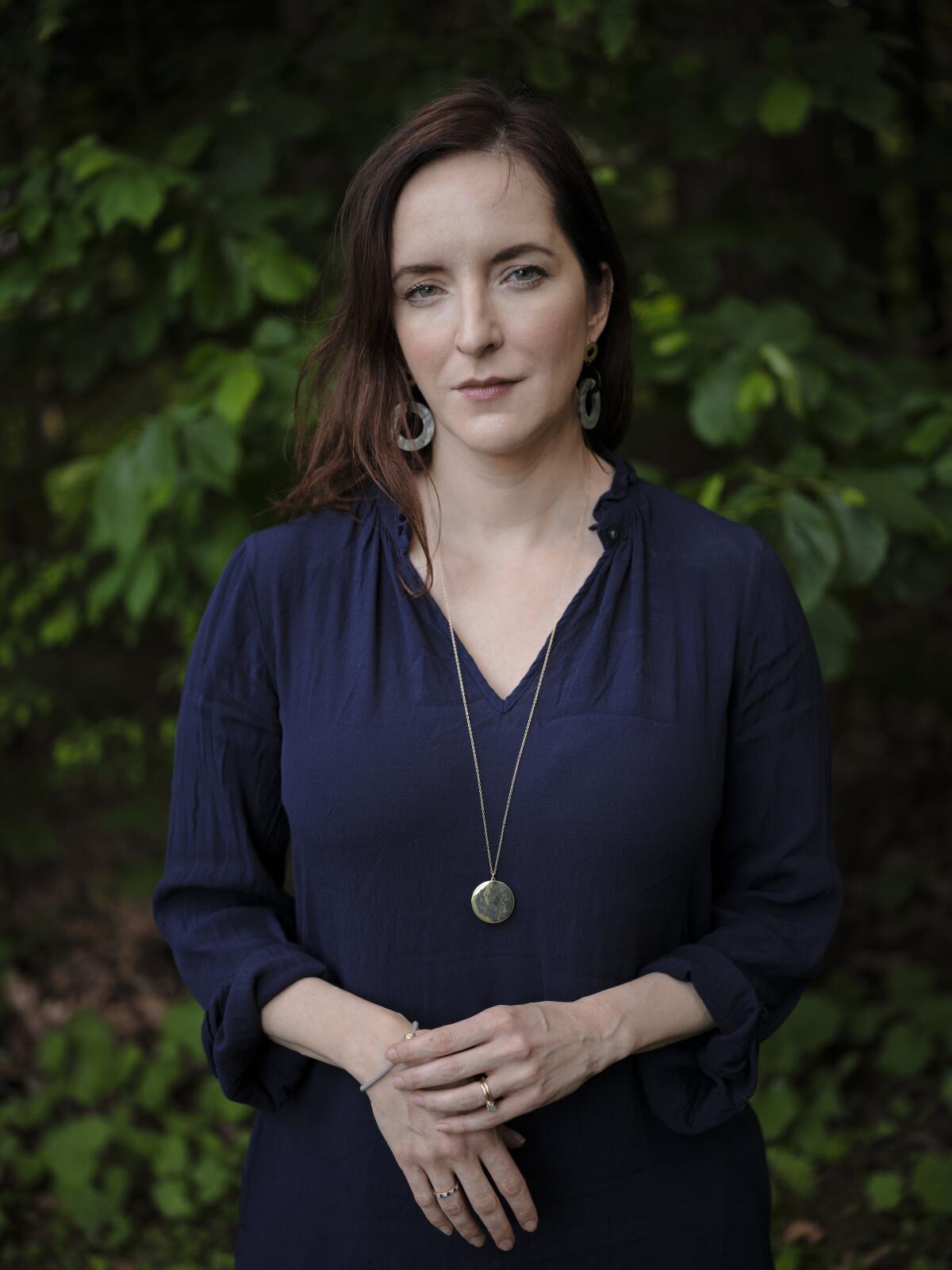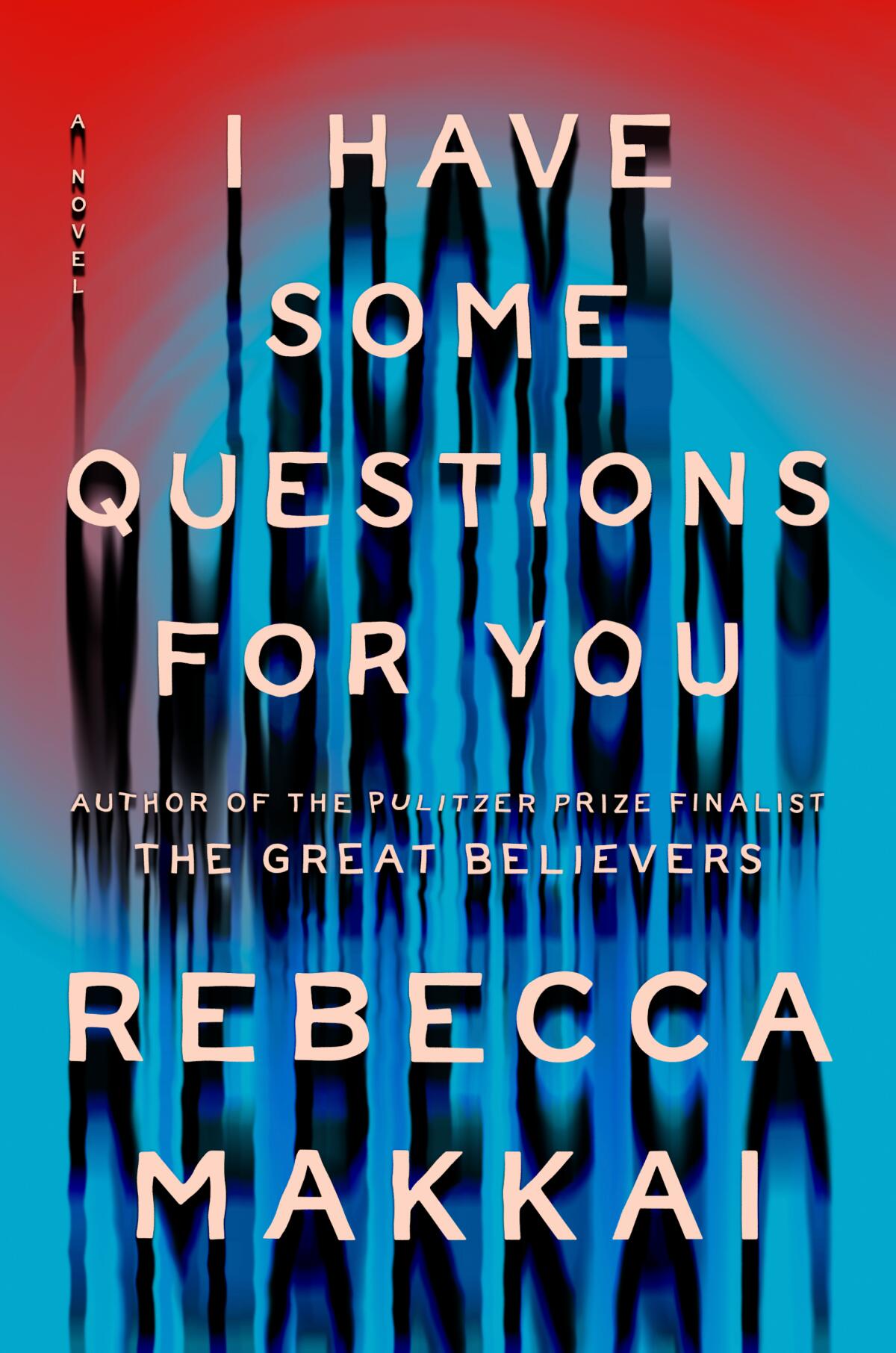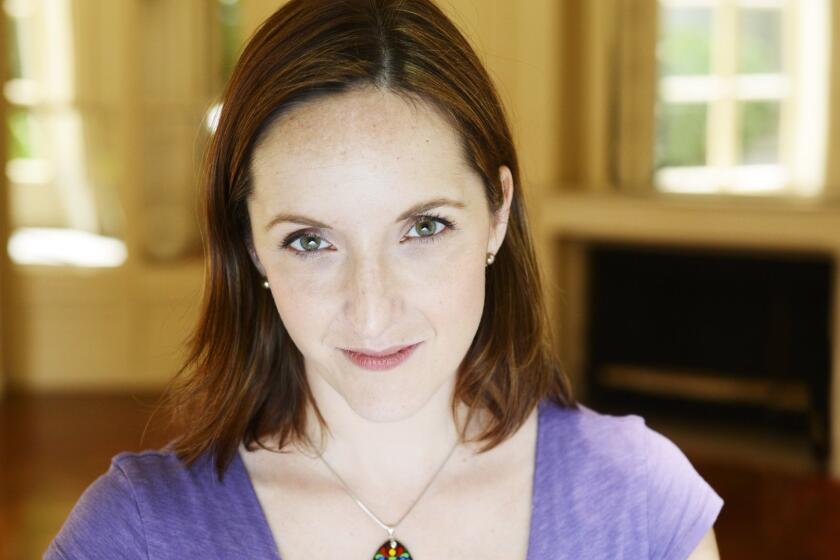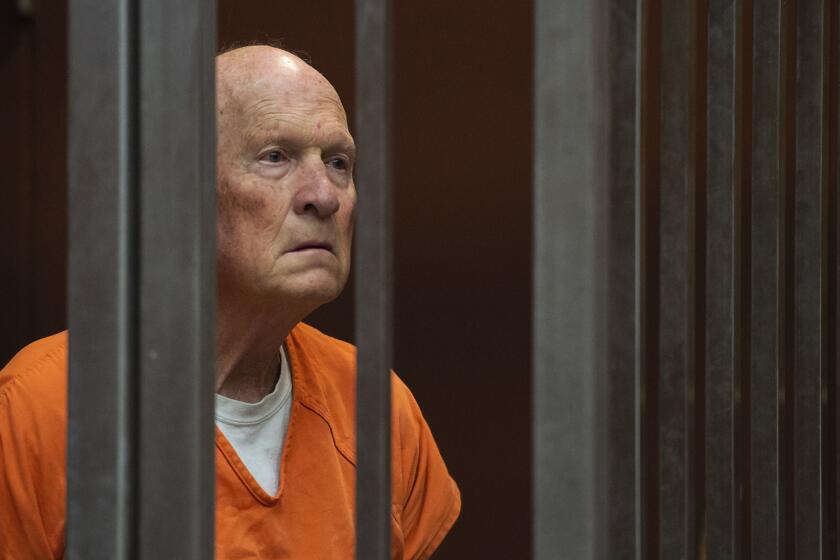Down the true-crime rabbit hole with novelist Rebecca Makkai

- Share via
On the Shelf
I Have Some Questions for You
By Rebecca Makkai
Viking: 448 pages, $28
If you buy books linked on our site, The Times may earn a commission from Bookshop.org, whose fees support independent bookstores.
Bestselling author Rebecca Makkai has plunged down the true-crime rabbit hole — fictionally, that is. This might surprise fans of her last book, the critical and commercial hit “The Great Believers,” about gay life in the 1980s under the shadow of the AIDS epidemic. Her new novel, “I Have Some Questions for You,” follows an L.A. podcaster who goes back to her boarding school and obsesses about a murder that took place there in the 1990s.
When Bodie returns to the Granby School in New Hampshire to teach during a short winter session, her thoughts circle back to the killing of one of her classmates. The murder is supposedly long-solved, but online sleuths occasionally pop up to ask: Is the wrong man in prison?
According to the tropes of true-crime podcasts, someone fixates on a killing and follows a circuitous investigation to the truth or something like it. That goes for the righteous and remarkable “Serial,” which helped lead to Adnan Syed’s recent release from prison; the tragic, revelatory “Bear Brook,” which tracked unidentified remains back to the families they came from; and the brilliantly silly Hulu series “Only Murders in the Building,” whose riffs on the genre show just how popular it has become.
“No one wants to die before the end of the story,” says a character in Rebecca Makkai’s new novel, “The Great Believers.”
Bodie doesn’t create a podcast herself, but she not so subtly prompts her students to do so. Soon, they’re avidly following the case.
Taken to an extreme, an amateur detective’s obsession becomes so acute that it warps their thinking — everything seems to feed into a single narrative. Simple investigations and irrelevant facts turn into webs of conspiracy. That happens a little bit to Bodie, who turns her suspicions on a teacher who left the school. It also happened to me.
Look at the facts: A long (long, long) time ago I had a podcast in Los Angeles. I also went to a boarding school in New Hampshire. Like Bodie, I did both crew and theater. So many details of boarding school rang true: check-ins, nicknames, preppy hierarchies, a sandwich bar in the dining hall. Also, my family comes from a town called Granby. I can’t tell you how strange it was to read about the fictional Granby School. Was this all just a coincidence?
Makkai, on a Zoom call, was quite reasonably not impressed by any of this. She’d chosen Granby as a shield — there are towns of that name in four New England states. She had been focused on inventing a place no one could possibly mistake for the private school she attended.
That would be the school, dear readers, from which she was Zooming.
Makkai lives on the premises of a Chicago boarding school, which she attended as a day student and where her husband, whom she met later in college, has taught for two decades.
“I get really frustrated by the portrayals of boarding schools in movies and on TV that are so off,” she said. “Partly it’s the romanticization, the dark academia vibe that can go a little cartoonish — where it’s always October, the leaves are always changing. And then the details that would just be hilariously wrong where it’s like, how do the freshman get a single?”
“My Dark Vanessa” is the latest and most unsettlingly effective book in a timely genre.
Bodie, having lived as an Angeleno, has a little more distance from her high school years. She is astonished, for one thing, to remember that she has to wear sweaters indoors.

“Trying to get into the mindset of someone who’d spent so much time in Los Angeles that winter would be a shock to them, when I’m writing it in the thick of Chicago winter, was a fun head space to imagine,” Makkai says.
While Bodie now has to be more careful about slipping on the ice, she finds the school is much the same. “The only thing changing was my vision,” she thinks.
As her past unspools, we learn Bodie was roommates with the young woman who was killed. And she is a little withholding, which gives readers something to chew on. How much is Bodie saying, and what isn’t she? Makkai skillfully weaves the past through the present with remembered scenes and conversations. It turns out that popular kids like the murdered roommate subjected Bodie to cruelties she’d rather forget.
Bodie is a complicated character. More than just a successful former student turned guest lecturer, she’s an absent parent who bristles at being asked who’s watching her kids; lingering in a disintegrating marriage, she’s embarked on an affair that isn’t going so well either. As a teacher, she can be careless, hungover, distracted. When her husband becomes the object of a sexual harassment accusation that blows up on social media, the fallout puts even more pressure on her domestic arrangements. No wonder she’d rather puzzle over a mysterious murder than attend to life back home.
She imagines the death scene — the girl drowned in a pool — over and over with various perpetrators. She worries about the man who’s in prison for the crime, a Black school staffer who was swiftly arrested and convicted. She returns again and again to both contemporary online discussion threads and the minute-by-minute details of that fateful night.
“Violent men unknown to me have occupied my mind all my adult life,” Michelle McNamara wrote in “I’ll Be Gone in the Dark: One Woman’s Obsessive Search for the Golden State Killer.”
Of all the situations Makkai had to imagine herself into, an all-consuming fascination with characters, timelines and potential plot twists may have been the easiest.
“It’s not hard for me as a writer to tap into what would be going through someone’s mind as they obsess about something,” Makkai says. “As a writer, I’m going to live for five years in this book and go through these possibilities and chart out what could have happened. So it’s not very hard then to get into the mind frame of someone who’s spending years trying to figure out what happened.”
She gathered her thoughts and continued: “I’m certainly not trying to make any parallels or say anything profound about creativity or anything like that. But it’s something that, you know, was accessible for me.”
True-crime stories have been so popular in our culture that they have enjoyed waves of new fans and critics. Makkai’s book fits so perfectly into the tradition that it’s already been optioned, with a planned adaptation as a series.
“I Have Some Questions for You” asks us to examine many things: high school, the ’90s, privilege, justice, sexual harassment, what we owe the dead. Like the true-crime podcasts it’s modeled on, it’s addictive, well told and a little bit unsettling.
Kellogg is a former books editor of The Times.
More to Read
Sign up for our Book Club newsletter
Get the latest news, events and more from the Los Angeles Times Book Club, and help us get L.A. reading and talking.
You may occasionally receive promotional content from the Los Angeles Times.








